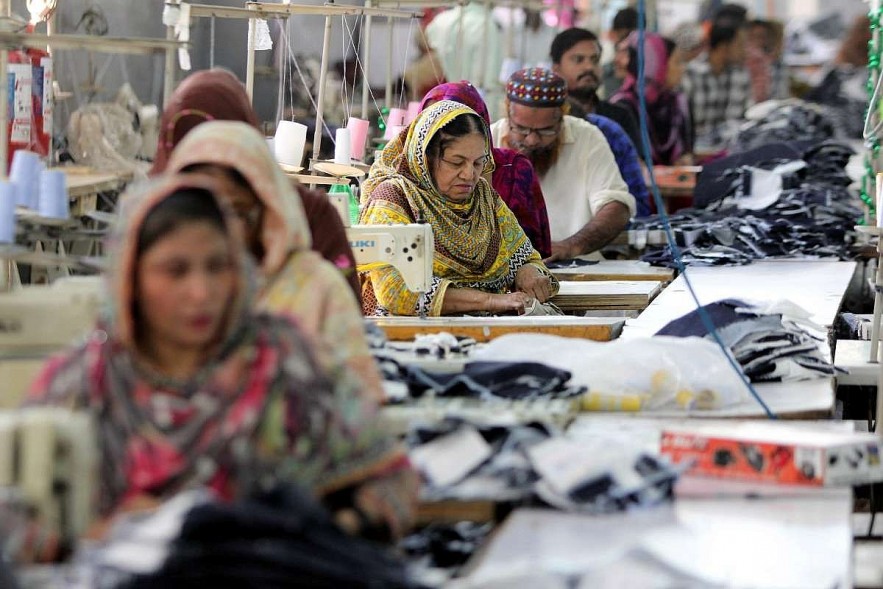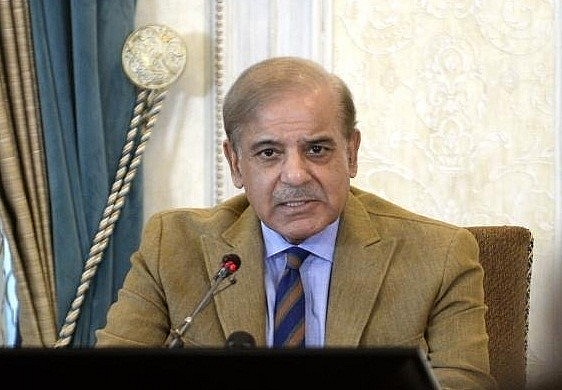EXODUS: Pakistanis Fleeing Amid Economic Turmoil and Political Uncertainty
 |
The number of Pakistani citizens leaving the country for a better life elsewhere has seen a sharp increase. In 2023, about 860,000 highly qualified and skilled professionals left Pakistan, which was 60,000 higher than a year ago and the highest since 2015.
Political instability, unmanageable inflation, and rising religious extremism are the major factors that are driving Pakistanis out. Inflation had crossed 37 percent in May 2023 even as food inflation reached an all-time high of 48.65 percent. Joblessness and low wages added to the problem further. Sana Hashim, a digital marketing professional, said “A salaried individual like myself is really struggling because prices have skyrocketed in recent months. My income hasn’t increased, but the inflation has.”
How serious the brain drain in Pakistan has become can be gauged from the fact that a whopping 2.5 million Pakistani workers left the country in the past five years. Pakistan ranked 161st in the last published Global Human Development Index and 102nd out of the 125 countries in the latest Global Hunger Index. Young business development professional Atiya Khan, who works in the UAE, does not want to return to Pakistan. “From security to the economy there are many repelling factors, which push youngsters like me away from my homeland,” she said.
Unemployment is a big issue in Pakistan as around half of young people do not have jobs. International Monetary Fund (IMF) estimated an unemployment rate of 8.5 in 2023. This factor is crucial for the exodus of the Pakistani youth to the Middle East and Western parts. “There are nearly 200 universities in Pakistan many of which award degrees in disciplines for which there are no jobs in the market,” said Aizaz Ahmad Chaudhry, a former Pakistani foreign secretary. “Having spent considerable sums on education, not finding a well-paying job is a deeply frustrating experience for a young person. The lucky ones who find jobs are also frustrated because of abysmally low salaries.”
The actual number of Pakistanis leaving the country appears to be higher than the official number as many resorted to illegal means to enter prosperous foreign lands. In June 2023, around 350 Pakistani migrants died when the boat they were traveling to enter Greece illegally sank. Frontex, the European Union’s border and coast guard agency, said 5,000 Pakistanis were detected on the “central Mediterranean route” into Europe in early 2023.
Pakistan has a long history of brain drain for which political instability and economic uncertainty are responsible, said former bureaucrat Zafar Aziz Chaudhry. “Given our deteriorating civil and economic conditions where there are not enough jobs to cater to our surging population, nor are there adequate laboratories or research centers where new advances in fresh discoveries of knowledge could be taken up and tested, most of the fresh youth, seeing a dismal picture at home, leave their country in frustration for greener pastures looking for a better future,” he said.
 |
| Pakistani Prime Minister Shahbaz Sharif |
Highly skilled workers, especially, healthcare professionals are not interested in working in Pakistan due to unfair remuneration, low incentives, and bleak future prospects. ”Common drivers of brain drain in Pakistan are long-term governance issues, quality of living, financial instability, and worsening infrastructure. Further, insecurity and the dwindling law and order conditions in the country encourage individuals to move overseas for a more stable life,” reads a report by the Pakistan Institute of Development Economics (PIDE).
The prolonged economic crisis and political instability have left Pakistan’s governance and civic infrastructure in a dire situation. Karachi gynecologist Afsheen Akbar said “It is painful to see some of our best doctors move to the US, but can we blame them? The conditions at public hospitals are often dire, and the health workers get paid so little.”[3] The desperation in Pakistan is growing, said Imran Khan, country director for Pakistan at the United States Institute of Peace. “We know that it is a combination of a lack of decent work and a general disillusionment about the future of the country which pushes young Pakistanis to use dangerous and illegal migration as a means to a better life,” he said.



